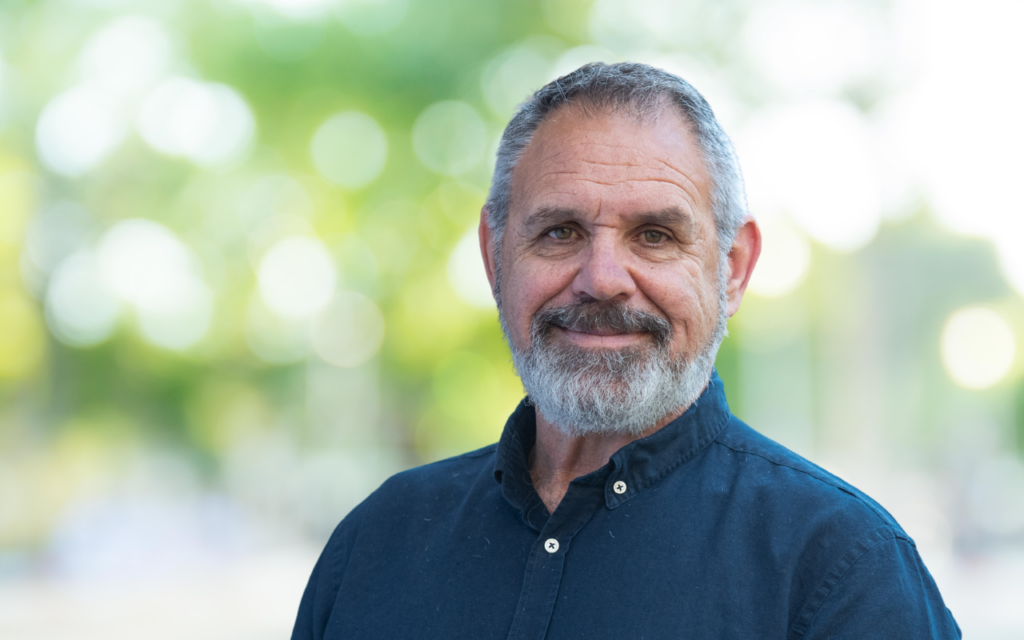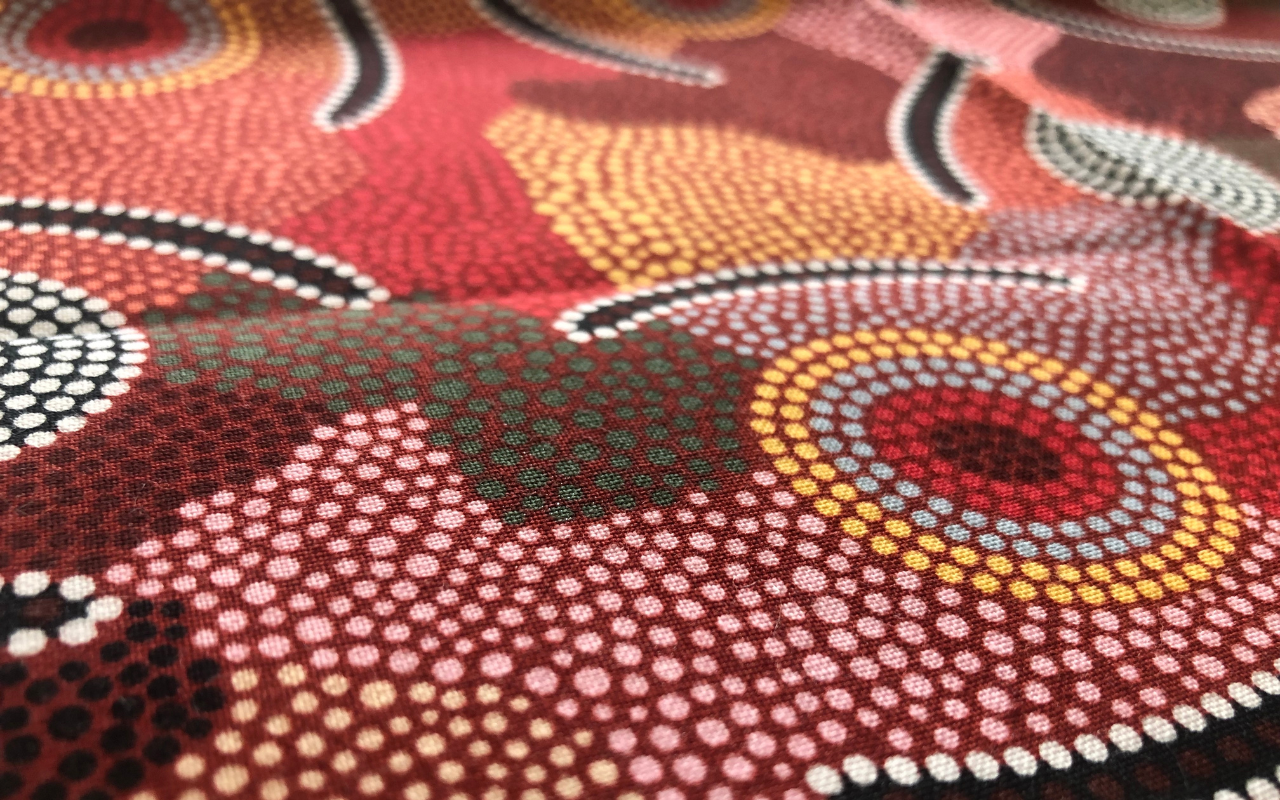Poche Centre Director Professor James Ward says universities need to provide support for Indigenous researchers and increase the number of Indigenous PhD candidates. InSight+ spoke to Professor James Ward about the centre’s innovative successes in supporting Indigenous academic pathways.
Professor James Ward is a Pitjantjatjara and Nukunu man, an infectious diseases epidemiologist and the director of the Poche Centre for Indigenous Health at the University of Queensland. Professor Ward is a national leader in Aboriginal and Torres Strait Islander research.
“We’ve always been the original scientists of this country,” said Professor Ward.
“But Indigenous researchers are particularly under-represented in the academy. We represent about 3% of the population, but only 1% of all academics. This is despite efforts over the last two decades to try to improve the number of Aboriginal people who stay in academy,” he said.

“There was a stat a few years ago that there are about 500 Aboriginal Torres Strait Islander people with a PhD. That’s way, way below what it should be,” said Professor Ward.
“We need not just academic programs, but programs for the social circumstances that Aboriginal Torres Strait Islander people find themselves in today,” said Professor Ward.
“We’re at a tipping point, and I think we’re moving in the right direction. But we’ve got a long way to go to equity. There’s a real place for Aboriginal people in the academy, and combining Indigenous methodologies with Western science,” said Professor Ward.
“The academy has to be flexible and bold enough to embrace these methodologies. The more Indigenous people we have in the academy, the more people that will be able to impart that to whole courses into the future,” he said.
Programs to support Indigenous academics
Professor Ward said that the Poche Centre has created programs to achieve equity for Indigenous academics.
“The university was particularly innovative, four years ago, in running an expression of interest for Aboriginal and Torres Strait Islander people who want to join the academy,” said Professor Ward. “The centre received over 30 applications,” he said.
Professor Ward said that he wanted to make sure the centre kept candidates in the program.
“Ten academics started at the one time at the university, so there was a cohort. But I thought, ‘Well, it won’t be good if six of them have left next year.’ And so, we wrapped a program around it called Yarning for Success,” he said.
Yarning for Success offers support that wasn’t provided by the mainstream university faculties, including principles of Indigenous data sovereignty, Indigenous methodologies, and challenging discourse.
“It was also an apprenticeship in quantitative training or qualitative skills. It makes our people much more rounded academics. We teach candidates positionality, Indigenous methodologies, Indigenous standpoint, decolonisation, and exposure to Indigenous academics who have made it,” said Professor Ward.
The program had Indigenous leaders speak to the cohort, including Emeritus Professor Aileen Moreton-Robinson, Professor Sandra Eades and Māori researchers.
“It’s about exposing people to networks, but also privileging Indigenous methods and ways of being, knowing and surviving in the academy,” said Professor Ward.
“There are methods you could use that are much more appropriate for Indigenous people. Like photo, voice, story, yarning, relationality. They’re well described Indigenous methodologies, described by Indigenous scholars. We’re trying to privilege a whole cadre of up-and-coming academics in knowing that there’s a body of evidence from around the globe developed by Indigenous scholars, which is trying to reposition ourselves in a Eurocentric institutional setting. Not to take over the western methods, but augment the western science,” he said.
“All of the researchers employed between 2020 and 2021 are still employed at the university. Several of them are coming up to their final reviews for their PhDs, with others still on the pathway,” he said.
Professor Ward said that Yarning for Success is adaptable and transferable to other universities.
A second program was Pathways Program to a PhD, a program adapted and run by and for Aboriginal and Torres Strait Islander people, to introduce the principles and processes of attaining a PhD. Twenty-five per cent of participants are now in the PhD program and are working in a wide range of areas.
While engaging Indigenous researchers in academia might contribute directly to closing the gap targets, targetsix (‘students reach their full potential through further education pathways’), and target seven (‘youth are engaged in employment or education’), engaging Indigenous research is likely to have an exponential effect on wellbeing within Indigenous communities.
“There are some fascinating other PhDs. One of them uses 3D modelling to make tablet medicines in the pharmacy school. Another is making the out-of-home care child system more culturally safe. Another is a major linkage study of all Queensland administrative datasets around rheumatic heart disease. One is improving the curricula for Aboriginal Torres Strait Islander physiotherapists. There’s work with elders, and the youth justice system,” said Professor Ward.
“It’s a real success story for UQ, because we’ve managed to keep 10/10 candidates employed as new academics.”
Launching success into the future
“The other thing that we’re looking at is supporting our successful PhDs. We’re employing them as postdocs, to make sure they have a foothold in the academy post PhD, and then, they come on to the fellowship pathway.
“We as Aboriginal people bring a different perspective. And it’s long overdue. Most of these institutions and systems in this country have been set up without the perspectives of the first peoples of this nation. We make sure that our people have the positionality to challenge the Eurocentric systems they’re working in,” said Professor Ward.
Professor Ward said that Indigenous people often have different pathways to academia.
“I had two decades of work experience under my belt before I did my PhD. Many of our people do that because we’re trying to survive, and we’ve got big families to feed,” said Professor Ward.
“For me, getting the highest education you can in this country is justice for my mum, Heather. She was excluded from education. For me, it’s justice for the people who didn’t have access to higher, or even basic, education in the early settler days of this country,” said Professor Ward.
Subscribe to the free InSight+ weekly newsletter here. It is available to all readers, not just registered medical practitioners.

 more_vert
more_vert
How many Indigenous Australians with PhDs are employed by universities? Either overqualified, or under-qualified/under-experienced, there is heaps of work available, so long as we don’t expect to be paid for it (or acknowledged for it).